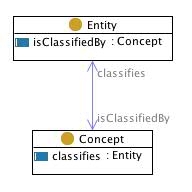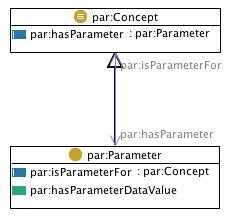📚
Ontologies
Experience & Observation - Intent |
|---|
to represent the epistemological "missing link" between a cognitive activity, e.g. the interaction with a cultural object, and any evidence of the effects this activity has on the individuals that are engaged with it; what can collectively be considered as an experience. |
Experience & Observation - Domains |
|---|
Experience & Observation - Core CQs |
|---|
|
Evidently, all these elements can be used to the modeling of ontologies for cognitive biases. Base OWL file for this ODP can be found here. Moreover, here is the diagram that the ODP uses:

Diagram of Experience & Observation
The Experience & Observation ODP has been adopted in the development of the following ontologies:
Sequence - Intent |
|---|
To represent sequence schemas. It defines the notion of transitive and intransitive precedence and their inverses. It can then be used between tasks, processes, time intervals, spatially locate objects, situations, etc. |
Experience & Observation - Domains |
|---|
Experience & Observation - Core CQs |
|---|
|
The Sequence ODP has been adopted in the development of the following ontologies:
Participation - Intent |
|---|
To represent participation of an object in an event. |
Participation - Domains |
|---|
Participation - Core CQs |
|---|
|

The Participation ODP has been adopted in the development of the following ontologies:
Classification - Intent |
|---|
To represent the relations between concepts (roles, task, parameters) and entities (person, events, values), which concepts can be assigned to. To formalize the application (e.g. tagging) of informal knowledge organization systems such as lexica, thesauri, subject directories, folksonomies, etc., where concepts are first-order elements. |
Classification - Domains |
|---|
Classification - Core CQs |
|---|
|

The Classification ODP has been adopted in the development of the following ontologies:
Parameter - Intent |
|---|
To represent parameters to be used for a certain concept. |
Parameter - Domains |
|---|

The Classification ODP has been adopted in the development of the following ontologies:
Last modified 20h ago